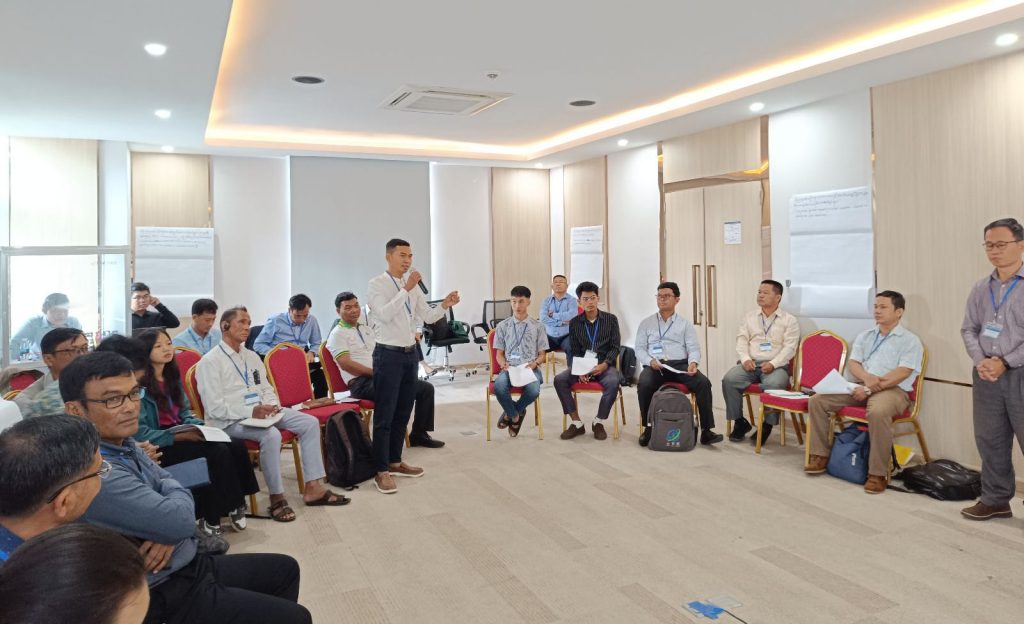Course Description
Scaling of innovations is a key requirement for addressing societal challenges in sectors such as health, agriculture, and the environment. Research for development (R4D) programs, projects and other interventions struggle to make particular innovations go to scale.
The CGIAR Innovation Packages and Scaling Readiness (IPSR) offers IRRI participants a comprehensive understanding of how to design, implement, and monitor scaling strategies for agricultural innovations within research for development contexts. This course leverages the principles and tools of Scaling Readiness, a framework developed by CGIAR and led by Wageningen University and IITA, to support decision-making on the scaling of innovations.
The Scaling Readiness is an essential knowledge and tools to effectively scale agricultural innovations within the framework of One CGIAR’s new stage-gating and performance management system. Scaling Readiness plays a crucial role in this cross-CGIAR initiative, driving significant changes across the organization by ensuring that all CGIAR Initiatives adopt and integrate its principles. Participants will learn to assess the readiness of innovations, identify bottlenecks, and develop strategies to overcome these challenges, thereby increasing the likelihood of achieving development outcomes at scale.
Participants will learn how Scaling Readiness has been successfully embedded in the project and performance management systems of CGIAR Research Initiative, and how its application can contribute to the achievement of the Sustainable Development Goals through more effective innovation scaling strategies. Through its standardized data collection and analysis approach, Scaling Readiness can be used to monitor a portfolio of innovation and scaling investments. It also supports prioritization, and decisions on the advancement of innovations to achieve societal outcomes at scale in the most resource-efficient way.
Course Objectives
The training workshop improves the efficiency and impact of research for development programs through critical reflection on how ready innovations are for scaling and what appropriate actions could accelerate or enhance scaling. By the end of the training course, the participants should be able to:
- Gain a deep understanding of the concepts, practices, and tools that make up the Scaling Readiness framework and its relevance to research for development.
- Learn how to evaluate the readiness of individual innovations and innovation packages to contribute to development outcomes at scale.
- Develop the skills to identify scaling bottlenecks and formulate strategies to overcome these challenges, enhancing the potential for successful innovation scaling.
- Explore how Scaling Readiness can be embedded in project and performance management systems to improve decision-making and ensure impactful outcomes.
- Familiarize the use of standardized data collection and analysis approaches to monitor innovation portfolios, prioritize investments, and make informed decisions about the advancement of innovations.
Course Output
Participants will be grouped and present the innovation profile of their chosen technology or innovation
Key Modules:
- Conceptual Frameworks for IPSR
- Designing Innovation Packages
- Case Studies on Successful IPs
- Introduction to Scaling Readiness
- Assessing Scaling Potential
- Developing Scaling Strategies
- Implementing and Monitoring Scaling Strategies
- Presentation of innovation profile
Learning Modality
The course will be delivered face-to-face with a mixed modality of synchronous and asynchronous discussions involving theoretical concepts, practical, and hands-on exercises, and self-paced e-learning activities.
Target Audience
This workshop is targeted for platform leaders, project managers, and staff at IRRI who are involved in research for development (R4D) programs and initiatives, innovation development and scaling
The course aims to enhance their ability to apply the Scaling Readiness framework effectively, improve their skills in assessing and advancing innovations, and contribute to achieving impactful development outcomes through strategic scaling. The workshop can accommodate 20-25 participants.



